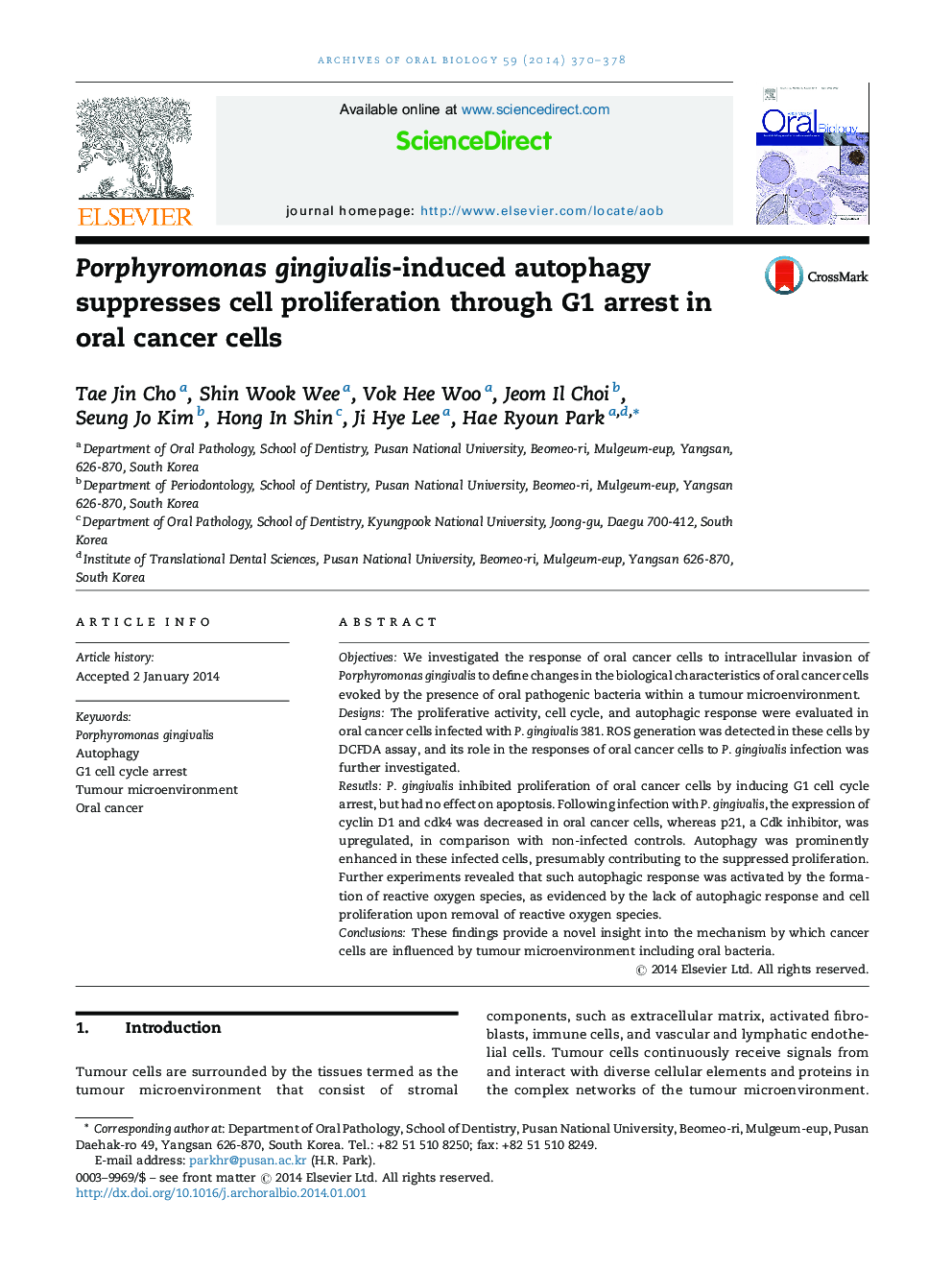| Article ID | Journal | Published Year | Pages | File Type |
|---|---|---|---|---|
| 3120937 | Archives of Oral Biology | 2014 | 9 Pages |
ObjectivesWe investigated the response of oral cancer cells to intracellular invasion of Porphyromonas gingivalis to define changes in the biological characteristics of oral cancer cells evoked by the presence of oral pathogenic bacteria within a tumour microenvironment.DesignsThe proliferative activity, cell cycle, and autophagic response were evaluated in oral cancer cells infected with P. gingivalis 381. ROS generation was detected in these cells by DCFDA assay, and its role in the responses of oral cancer cells to P. gingivalis infection was further investigated.ResutlsP. gingivalis inhibited proliferation of oral cancer cells by inducing G1 cell cycle arrest, but had no effect on apoptosis. Following infection with P. gingivalis, the expression of cyclin D1 and cdk4 was decreased in oral cancer cells, whereas p21, a Cdk inhibitor, was upregulated, in comparison with non-infected controls. Autophagy was prominently enhanced in these infected cells, presumably contributing to the suppressed proliferation. Further experiments revealed that such autophagic response was activated by the formation of reactive oxygen species, as evidenced by the lack of autophagic response and cell proliferation upon removal of reactive oxygen species.ConclusionsThese findings provide a novel insight into the mechanism by which cancer cells are influenced by tumour microenvironment including oral bacteria.
